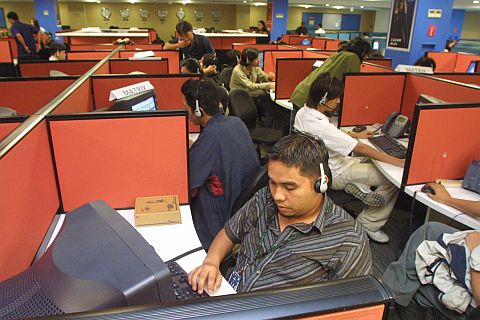Cebu City EOC recommends guidelines for BPOs’ return to work on-site

The Cebu City government has set rules for employees of BPOs or business process outsourcing companies after the Finance Department ordered the return to work on-site starting April 1, 2022. | CDN FILE PHOTO
CEBU CITY, Philippines — The Cebu City Emergency Operations Center or EOC is recommending to Mayor Michael Rama a new set of guidelines for Business Process Outsourcing (BPO) for their return to work-on-site set-up.
The BPOs are required to go back on site by April 1, 2022, in order to avail of financial incentives from the Department of Finance (DOF).
Even though the EOC said they supported the BPO industry’s request for an extension of the work-on-site by September 2022, the guidelines were set to prepare the BPOs.
The DOF has recently turned down the request for the extension, forcing BPOs to return to their sites by April 1, 2022.
With this, the EOC is meeting the BPO industry on Friday, March 18, 2022, to discuss the guidelines set for 100 percent operations in the BPOs in Cebu City’s major economic or business zones.
The guidelines include the following:
1. Flexible Work Arrangement: All work that can feasibly be completed at home should be allowed therein. Only physically come to work for work that cannot be successfully accomplished at home.
2. Social Distancing: All employees are instructed to maintain a reasonable distance from each other and any third parties, except when there are existing barriers between working stations such as when there are assigned work cubicles.
3. Strict compliance of the minimum public health standards such as but not limited to wearing of face masks, reasonable distancing, and coughing etiquette must still be strictly observed.
4. Ventilation: Protective health protocols and action plans including the installation of facilities and devices that improve air circulation and proper ventilation of the workplace must be set.
5. Designation of a HIPCO: A Health Infection and Prevention Control Officer (HIPCO) shall be assigned to each establishment who shall ensure compliance with the health protocols for both employees and clients.
6. Masks: All employees are required to bring and wear masks or cloth face coverings while in the office, and especially in common areas.
7. Handwashing: Should be performed at regular intervals using soap and water and/or hand sanitizers and should be performed before and after entering communal spaces. Handwashing or sanitation stations must be provided in strategic areas of the office.
8. Pantry and Mess Hall: To prevent possible transmission within the workplace, it is incumbent upon IT-BPM companies to regulate the capacity of mess halls and pantries so as not to overcrowd areas, especially during breaks and eating time when employees take off their masks and are not socially distanced.
9. Meetings: Face-to-face meetings should only be convened when they are critical and necessary for the operations of the company. Meeting attendee numbers should be kept to a minimum, reasonable distancing rules and health protocols should be enforced in all meeting rooms.
10. Cleaning and Disinfection: Regular cleaning and disinfection must be conducted to ensure cleanliness.
11. Designated Isolation Room: When practicable to the employer, there shall be a designated isolation room for employees who manifest COVID-19 symptoms while reporting to work. In such case, the company nurse or medical practitioner shall immediately assess and monitor the said employee for appropriate action and referral for COVID-19 testing.
COVID-19 outbreaks
For suspected COVID-19 cases, such as workers exhibiting symptoms, they are required to take a COVID-19 test. They must be quarantined to avoid spreading the virus.
Any employee who has had recent contact with an individual known to have tested positive for coronavirus, or any employee that has been exposed to a recent high-risk situation, or who has had contact with an individual from a high-risk area must isolate.
Probable COVID-positive employees may opt to work from home during isolation.
All employees that plan to work onsite must assess for potential signs and symptoms of coronavirus each day prior to coming to work.
Councilor Joel Garganera, the deputy chief implementor of the EOC, said that BPO companies would be encouraged to join the meeting on Friday to air their concerns about the guidelines.
RELATED STORIES
CCCI supports BPO industry’s request for extension of WFH until September
Peza tells BPOs: Return to your offices while we pursue WFH appeal
Back-to-work order for BPOs may hurt PH, says Colliers
No termination for BPO workers who refuse on-site work, says DOLE exec
/dbs
Disclaimer: The comments uploaded on this site do not necessarily represent or reflect the views of management and owner of Cebudailynews. We reserve the right to exclude comments that we deem to be inconsistent with our editorial standards.
